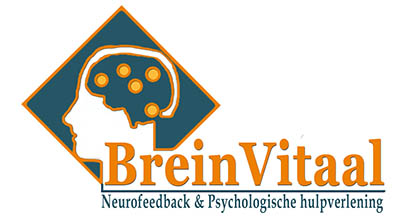FAQ
Voor welke klachten werkt neurofeedback?
Er zijn veel studies naar de werkzaamheid van diverse klachten door neurofeedback. Neurofeedback is zeer succesvol in de behandeling van epilepsie slaapstoornissen en ADHD. Voor ADHD wordt neurofeedback al meer dan 30 jaar succesvol toegepast als evidence based behandeling, een meta analyse (2009) toonde dat aan. De effecten zijn vergelijkbaar met die van medicatie. Maar in tegenstelling tot medicatie zijn bij deze hersentraining de resultaten blijvend.
Hoe lang duurt het tot dat ik resultaten zie?
Dit kan binnen 1 tot 12 sessies blijken. Hoeveel sessies uiteindelijk nodig zijn is afhankelijk van je individuele situatie. Uit ervaring blijkt dat 25-40 sessies gebruikelijk is.
Gaat iedereen verbetering merken?
Je brein is gemaakt om te leren. En neurofeedback is een leerproces. 70-85% van de cliënten heeft baat bij een behandeling. Het komt zelden voor dat iemand helemaal niets merkt van de behandeling. De combinatie met gesprekstherapie maakt dat het effect vaak groter is.
Heb ik een diagnose nodig?
Dit is niet nodig , we kijken naar de hersenactiviteit en behandelen de klachten.
Krijg ik elektrische schokken?
Nee, de elektrodes kunnen alleen gebruikt worden om breinactiviteit in het hoofd te meten.
Wat is het succespercentage bij neurofeedback?
Voor neurofeedback is het succespercentage 70-85%.
Literatuur
Arns, M., Heinrich, H., & Strehl, U. (2013). Evaluation of neurofeedback in ADHD:The long and winding road. Biological Psychology.doi:10.1016/j.biopsycho.2013.11.013
Arns, M.,& Strehl, U. (2013). Evidence for efficacy of neurofeedback in ADHD? TheAmerican Journal of Psychiatry, 170(7), 799a-800.doi:10.1176/appi.ajp.2013.13020208
Arns, M., de Ridder, S., Strehl, U., Breteler, M., & Coenen, A. (2009). Efficacy of neurofeedback treatment in ADHD: The effects on inattention, impulsivity and hyperactivity: A meta-analysis. Clinical EEG and Neuroscience, 40(3), 180-9.
Dongen-Boomsma, M. van, Vollebregt, M. A., Slaats-Willemse, D., & Buitelaar, J. K.(2013). A randomized placebo-controlled trial of electroencephalographic (EEG)neurofeedback in children with attention-deficit/hyperactivity disorder. The Journal of Clinical Psychiatry, 74(8), 821-7. doi:10.4088/JCP.12m08321
Van Doren J, Arns M, Heinrich H, Vollebregt MA, Strehl U, K Loo S. (2018). Sustained effects of neurofeedback in ADHD: a systematic review and meta-analysis. Eur Child and Adolescent Psychiatry
Faraone SV,Buitelaar J. Comparing the efficacy of stimulants for ADHD in children and adolescents using meta-analysis. Eur Child Adolesc Psychiatry. 2010;19:353-64
Friedrich et al. Electroencephalogram and heart rate regulation tot familiar and unfamilar people in children with autism spectrum disorder (2009) https://www.frontiersin.org/articles/10.3389/fneng.2014.00021/full
Gruzelier, J.H. (2014). EEG-neurofeedback for optimizing performance. I: A review of cognitive and affective outcome in healthy participants. Neuroscience and Biobehavioral Reviews, 44, 124-141.
Hauri PJ, Percy L, Hellekson C, Hartmann E, and Russ D (1982). The treatment of Psychophysiologic Insomnia with Biofeedback: A Replication Study. Biofeedback and Self-Regulation, 7(2), 223-235.
Holtmann, M., Grasmann, D., Cionek-Szpak, E., Hager, V., Panzner, N., Beyer, A., Stadler, C. (2009). Spezifische wirksamkeit von neurofeedback auf die impulsivität bei ADHS. Kindheit Und Entwicklung, 18(2), 95-204.
Lubar, J. F., & Shouse, M. N. (1976). EEG and behavioral changes in a hyperkinetic child concurrent with training of the sensorimotor rhythm (SMR): A preliminaryreport. Biofeedback and Self-regulation, 1(3), 293-306.
Kouijzer, M. E. UJ., de Moor, J. M. H., Gerrits, B. J. L., Buitelaar, J. K., & van Schie, H. T. (2009). Long-term effects of neurofeedback treatment in autism. Research in Autism Spectrum Disorders, 3(2), 496–501.
Lloyd, Brett, Wesnes (2010). Coherence training in children with attention deficit disorder: cognitive functions and behavioral changes. Altern Ther Med 2010 Jul-Aug;16(4):34-42. www.stress.org/wp-content/uploads/2011/08/coherence-training-in-children-with-adhd.pdf
Pineda J. A., Brang D, Hecht E, Edwards L, Carey S, Bacon M, Futagaki C, Suk D, Tom J, Birnbaum C, Rork A.(2008). Positive behavioral and electrophysiological changes following neurofeedback training in children with autism. Research in Autism Spectrum Disorders, 2, 557–581.
Steiner, N. J., Frenette, E. C., Rene, K. M., Brennan, R. T., & Perrin, E. C. (2014). In-School neurofeedback training for ADHD: Sustained improvements from a randomized control trial. Pediatrics. doi:10.1542/peds.2013-2059
Steiner, N., Frenette, E., Hynes, C., Pisarik, E., Tomasetti, K., Perrin, E., Rene, K. (2014). A pilot feasibility study of neurofeedback for children with autism. Applied Psychophysiology & Biofeedback, 39(2), 99-107. doi: 10.1007/s10484-014-9241-1
Wronska, N et al. (2015) An iPad-based tool for improving the skills with attention deficit disorder Int J Environ Res Public Health 2015 Jun 2;12(6):6261-80.
